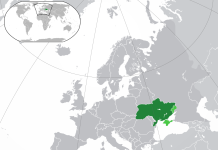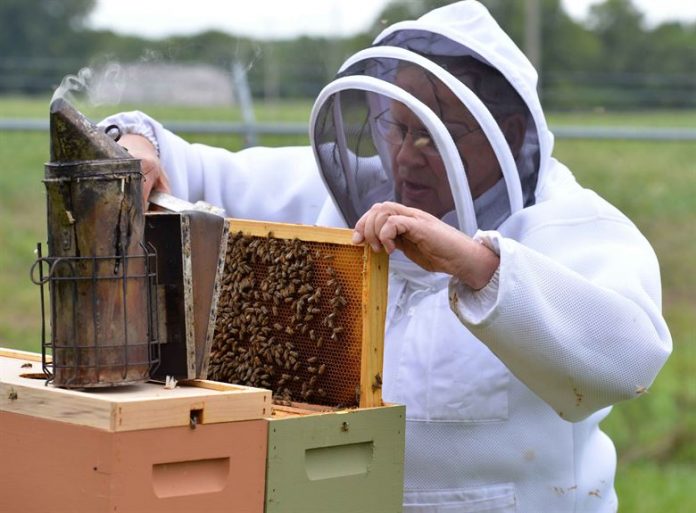THE OTHER HONEY
CSE organises webinar on honey harvested by tribals and indigenous local communities
India has a rich tradition of honey that is harvested by tribals and communities who live in and around forests. But this sector of the honey business is seriously threatened by a combination of factors – unsupportive regulations and standards, lack of marketing support, and consumer ignorance and apathy: this was brought out in a webinar organised here yesterday by Centre for Science and Environment (CSE), which brought together some key organisations that work with community-based local honey ‘hunters’.
A few days ago, a CSE investigation along with laboratory studies done in India and Germany had revealed rampant adulteration in honey sold by almost all major brands in India — 77 per cent of the samples were found adulterated with sugar syrup. Only three out of 13 brands investigated passed the internationally accepted Nuclear Magnetic Resonance Spectroscopy (NMR) test.
The CSE investigation had also found that Indian standards for honey purity cannot detect the adulteration.
Bees in peril
Speaking at the webinar today, CSE director general Sunita Narain put things in perspective by underlining why the issue of honey is so critical: “The question is far bigger than that jar of honey that graces our kitchen or our dining tables. It raises questions of the health of our ecosystem, and of food security. Bees are harbinger species – they indicate the health of our ecosystem. A loss of bees can lead to a collapse of our food system – bees are critical for pollination, and if they die, so will the productivity of our agriculture.”
Narain also pointed out that bee-keepers in India have been complaining of declining productivity because of changes in the ecosystem – in an earlier webinar organised by CSE with them, bee-keepers reported cases of lower nector content in plants.
Speakers at the webinar – Mathew John of Keystone Foundation and Stan Thekaekara of Just Change India (both from Tamil Nadu), and Tapas Mondal of Sundarban Jana Sramajibi Mancha (West Bengal) – echoed these thoughts. Mathew John pointed out that bees provide what he called extremely critical and irreplaceable “pollination services, valued at US $500 billion”. According to Stan Thekaekara, for tribal honey hunter-gatherers, “honey and honey gathering is a way of life, and not just a livelihood – and this way of life was under threat, with huge numbers of bees reportedly dying as a result of rampant use of weedicides and pesticides”.
Unsuitable standards
The speakers pointed out a major anomaly in the way standards for honey have been set in India. Mathew John said that Indian standards have not been devised keeping in mind indigenous species of bees, of which India has four – instead, “India uses standards that exist in the West for a species which is not indigenous”.
“Our standards are not applicable in our own country! Take the case of moisture content in honey: the standard is 20 per cent, but in a country like India, moisture content can range between 23-24 per cent in honey produced by indigenous species,” says John. “The standards for pollen count have been diluted from 50,000 to 5,000, making it easy for sugar syrups to make an entry into this trade,” said Stan.
Narain agreed that Indian standards needed a drastic rethink. “Standard setting for honey will need to be done with extreme care and caution. It must differentiate between processed and community honey – so, perhaps India needs two sets of standards for honey. But at the same time, the standards must be strict and closely enforced to dissuade the big companies from playing with our lives,” she said.
Inadequate valuation
The economics of the business was another key point of discussion at the webinar. Management of bees and honey-harvesting – whether it is by individual bee-keepers or tribal honey-hunters – requires immense skill, passion, knowledge and labour. According to Narain, this needed to be valued and adequately compensated.
Tapas Mondal, who has initiated an experiment in the Sundarbans to enable honey collectors get a fair price for their labour, was of the opinion that a “shorter supply chain, without the meddling around by middlemen” could help. For years, honey collectors in the Sundarbans had been forced to sell their produce to the forest department at ridiculously low rates.
Stan Thekaekara pointed out that while the growth of honey as a product has been significant, “there is no diversity in the product being sold in the market. All of them taste and look the same, as opposed to the honey gathered by communities. There is honey and there is real honey – what most people are buying is not real honey. Honey harvested by tribals – the real honey – is expensive because people risk their lives to get it.”
Participants at the webinar raised the question of how the community honey business could be scaled up. Almost all the speakers were of the opinion that scaling up was not an option. Narain was very clear: “Everything need not be at the scale of the big brands. In fact, we may need to start talking about scaling down, with the way the world is changing its ways and means of doing business.”

By Ms. Pratyusha Mukherjee, a Senior Journalist working for BBC and other media outlets, also a special contributor to IBG News & IBG NEWS BANGLA. In her illustrated career she has covered many major events.




















